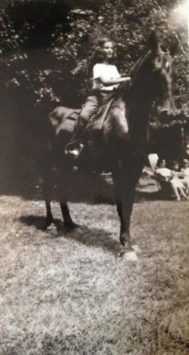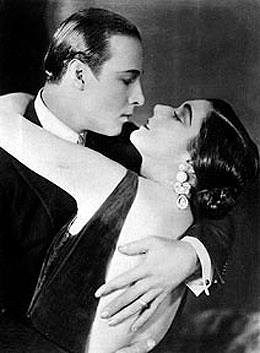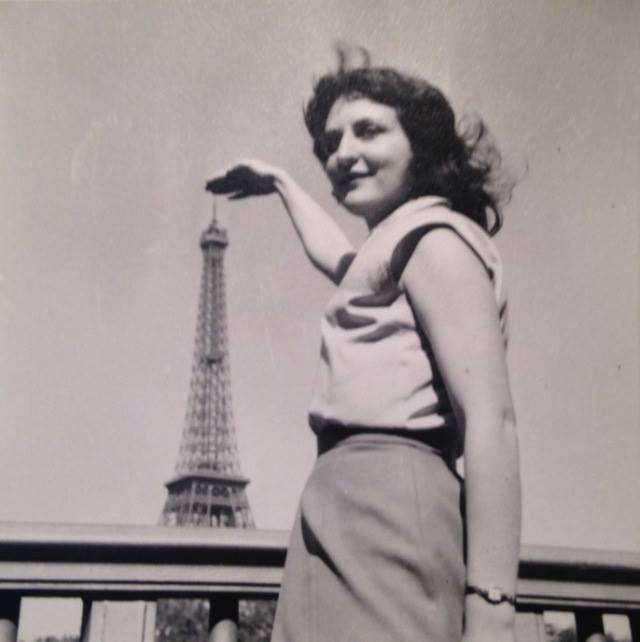Love.
Just now I am reading a book Jerry got me, titled, Love in the Western World. Translated from the French, it’s by a guy named Denis de Rougement. With a name like that, and a title like that, who can resist?
Actually, that very same book sat on my parents’ bookshelves where, from time time, I would pluck it off its shelf, in youthful anticipation of the romantic peaks that might be found in a book. After a time, I would put the book back, never able to figure out what he was talking about. So here it is again, and now’s my big chance to fathom the depths and scan the heights of what the French call la carte de tendre, the map of love.Read More…

Life.
People commit suicide when their lives seem to them meaningless. At least, that’s been my experience, which I’ll share with you.
I’ve talked two women friends out of killing themselves, which they seemed quite serious about doing. I’m not a professional at this kind of thing, but it might be worth revisiting the incidents to see what I did.
They were both women I knew from a twelve-step program, whose meetings I attended during the period when there was “someone in my life whose drinking bothered me.” After I left that group, the friendships attenuated too, so I don’t know how their lives turned out later.Read More…

Philosophy.
In recent months, I’ve been reading books that – if I weave them together – bestow overviews of two major branches of philosophy: Analytic Philosophy and Continental Philosophy. They have dominated the field for the last hundred years.
I’ve heard contributors to each branch say of the other, “It’s not philosophy.”
Oh well, let’s not quarrel.
So, let me tell you what I’ve learned about these two major types of philosophy. It’s something of a detective story: Who-dunnit, and with what motives?Read More…
I’ve written a book, A Good Look at Evil.
Here’s where you can get your copy.
The audiobook as well as selected chapters from it, “Spoiling One’s Story: The Case of Hannah Arendt” and “God and the Case for One’s Story,” are now also available!

Hannah Arendt is known for the claim that Adolf Eichmann, who implemented The Holocaust, was merely a banal bureaucrat. In her youth, she held a very different view.
Arendt was a talented woman simultaneously sustaining a hidden love affair and maintaining the posture of a disinterested public intellectual. Hers is a story of moral upending and reversals. It is the backstory. It is time for thoughtful listeners to know it.

Does God have a part to play in the life stories we live? Many people have the experience of a God-intervention in their lives. Philosophy has offered no warrant for treating these experiences as anything but coincidences — until now.
This chapter takes on the challenge of defending the view that there is providential intervention in our lives.
Get “Spoiling One’s Story: The Case of Hannah Arendt”
Get “God and the Care for One’s Story”
What People Are Saying about “A Good Look at Evil”
I first received this book in the expectation of procuring some insight into the nature of evil. What I gained was certainly this, but far more.
A Good Look at Evil begins with a unique take on the ethical life as the realization of one’s ideal story, and evil as the destruction of this process either within oneself or in others. In unpacking these deceptively simple definitions, Rosenthal offers a wealth of ideas which may serve to deepen and transform our grasp of human nature. Here, for instance, one finds keen profiles of unsavory figures like the seducer and the sell-out-depictions on par with the best philosophical novels. Here is also a merciless dissection of Hannah Arendt in light of new evidence concerning the Eichmann trial and her relationship to Martin Heidegger. Here is a penetrating study of the different kinds of personalities and motives behind genocide.
Chapters such as “Thinking like a Nazi” can compete with Sartre’s Anti-Semite and Jew for recognition as among the greatest phenomenologies of self-deception and the genesis of the bigoted mind. All throughout, Rosenthal engages with a host of authors both classic and contemporary. She explores topics which connect philosophy with anthropology, history, and even theology.
Rosenthal’s concept of God as a co-author of our life-narrative merits some future exploration, and may yet have some impact on the philosophy of religion. The sheer originality of this book make it a pleasure to read, and my grasp of the range and phenomena of evil have advanced considerably after having completed it. This is no small claim, given that I have been teaching courses in both theoretical and applied ethics for close to twenty years.
I highly recommend this book for anyone interested in the perennial questions of right and wrong-indeed for any intellectually curious and morally serious person.
Jonathan Weidenbaum, Ph.D., School of Liberal Arts, Berkeley College, NYC
As a person who wholeheartedly subscribes to the idea that we must be constantly attentive to, and increasingly watchful over, the ‘plots’ of our own unfolding stories, I found Abigail Rosenthal’s a welcome, revealing, and indispensable book about the slippery crevices of the moral life. I hope it is translated into many languages. Everyone should read it.
Gail Godwin, author of Heart: A Personal Journey Through Its Myths and Meanings (2001)
Abigail Rosenthal proposes a new way of understanding one of the oldest mysteries-the nature of evil. Drawing on wide literary and philosophical resources, Rosenthal proposes that narrative self-understanding is the key to a good life. She traces the implications of this idea for understanding various types of evil, including the ultimate evil of Nazi genocide-which, she argues, cannot be understood in Arendtian terms as a kind of banality. Highly personal and original, Rosenthal’s work offers new ways of grappling with some of the largest ethical questions.
Adam Kirsh, author of The Global Novel: Writing the World in the 21st Century (2016)
Rosenthal pinpoints the characteristic feature of evil–at least the leading type of evil–that distinguishes it from what is only morally wrong or very, very bad. It is based on her basic notion of an ideal ‘life story’ or plot. She extends both concepts from individual victims to races and populations as victims. [T]here is nothing banal or ordinary about evil, the intentional disrupting of the victim’s ‘ideal thread’ or plot. … In a fascinating new essay, Rosenthal revisits Hannah Arendt . . . applying her “plot” concept to Arendt herself in light of what is known about Arendt’s long intellectual and personal relationship with Heidegger. Rosenthal argues that despite a splendid recovery from early adversity, Arendt went on to ‘spoil’ her own life story. And in a concluding piece, Rosenthal shows from her own experience how one can have reason to believe that a person’s life story has been co-authored by God.
William G. Lycan, author of Real Conditionals (2001)
It is a most compelling and creative work. Rosenthal is analyzing the ‘stories’ that people tell us about themselves, in terms of both their lives and their work. She does so in an effort to understand genocidal evil-doers, both those who perpetrate and collaborate with it and those who cover up such crimes.
Phyllis Chesler, author of An American Bride in Kabul: A Memoir (2013)
Rosenthal writes in a distinctive philosophical voice that models personal interest in the moral quality of life and, with the vividness and candor that this implies (and also considerable wit and humor)…. Evil can be not merely the sad effect of compromises and evasions but a bright, hot, self-nourishing interest in the kind of personal superiority that one realizes by laying waste to others. If we held evil to be merely a general criterion for the moral evaluation of practice and avoided pinning it to any real individual, we would miss the very phenomenon that forces us to reckon with evil as distinct from what is merely regrettable or deficient in our lives– a phenomenon with an alarming human concreteness.
Stephen G. Smith, Professor of Philosophy, Millsaps College, published online in Continental Philosophy Review
A Good Look at Evil is not only an examination of evil but proposes a new way to think about our own lives. By adopting a literary approach to a philosophical question, Rosenthal has provided genuine insight into a problem that has befuddled thinkers for ages. Evil is not an abstract concept but a lived reality and situation in which we encounter. If you wish to understand evil as well as to know how to live your life, A Good Look at Evil is a perfect way to begin writing your own story.
Lee Trepanier, Editor, The Voegelin View
Edmund Burke famously said, “The only thing necessary for the triumph of evil is that good men do nothing.” Abigail Rosenthal’s book, A Good Look at Evil, takes it one step further. The only thing necessary for the triumph of evil is to pretend that it doesn’t exist! A Good Look at Evil, then, is a remarkable and incisive exploration of the human condition.My compliments to the author, Abigail Rosenthal, for her thoughtful and inspiring book. No wonder this book was nominated for a Pulitzer Prize.
Ray Silverman, Amazon Customer Review
Abigail Rosenthal is a professor (emerita) of philosophy, which is not the same thing as being a real philosopher. Indeed, there are few enough books written today by genuine philosophers. This is one. Like Socrates, she also conducts conversations with the many non-philosophers, but unlike him, she does so over the Internet in an online column, “Dear Abbie: The Non-Advice Column.” Any book with the title, A Good Look at Evil looks to be heavy going, but Rosenthal’s treatment of an undoubtedly important philosophical problem is remarkably accessible to anyone who still retains a hold on commonsense.
This is, then, a genuine and practical philosophy of existence, a recovery of the understanding of philosophy as a way of living. Moreover it is devoid of the high sounding and usually empty words we often associate with philosophy, words that properly speaking are the verbal coin of the realm for intellectuals, sophists, PR flacks and similar frauds.
Barry Cooper, Professor of Political Science, University of Calvary, Amazon Customer Review and Voegelin View
Reading a book without filtering it through the biases and fears of one’s own time is difficult enough, and you’d think that a book with a focus on the concept of “evil” would be able to analyze its topic in a mutually shared understanding if not objective definition that would hold up across time and cultures.
And you’d be wrong about all of that.
Evil, perhaps like stupidity, is not easily defined. Wouldn’t you just assume that something as pervasive, menacing and potentially (if not actually) personally and socially destructive as “evil” would be immediately recognized, like the emergence of some lethal bacterial invader, and dealt with as fully and comprehensively as possible at its first sighting?
But no, evil – on levels we can barely recognize – on a scale sometimes not too small, but too large – loom over any and every society now and then, and like any pernicious disease, no one is immune and every society, no matter its safeguards, is vulnerable.
And like any infectious disease, evil begins slowly, takes a foothold and expands, slowly and barely noticeable at first and then, if not recognized, begins to flourish in dark and neglected plae and finally emerges strong and resistant.
Like the great plagues, forms of evil can define an era or a culture.
And evil, like disease, (or even stupidity) is no abstraction. Evil distorts, deceives, captivates, and ultimately consumes its victims, which again, can be any of us.
This book is not for everyone. Some will find it hard to read, others will discover that they, despite their denials, justifications and protestations, actually love and cultivate evil.
Eventually they, and possibly we, will pay the cost, but until they go off the proverbial cliff or enter the fire and fury of their own making, they will preserve their “opinion” or “values”. Hell, I am sure, is packed with people defined by their certainty and “faith” in some unyielding cause or convincing personality.
We have seen this many times before, we will see it again – and, I am convinced, we are seeing it right now.
It’s hard for me to believe that this book was written over thirty years ago, its warnings – and examples – could have been taken from today’s front pages and today’s cast of characters eager to convince, cajole and frighten us into believing the worst of each other- and ourselves.
In America in particular, a land which has (almost) always prided itself on being a land of justice, equality and opportunity, evil – obvious, tangible and blatant evil, has taken root and flourished to a degree most of us never would have imagined possible.
Many people I know have rushed to embrace it. They are intoxicated and inspired by it. They, like the devotees of Ceasars, Kaisers and Fuhrers before them are convinced that they know “the One” who will save them. Their rush to their own ashes is truly frightening. And history shows us that the destruction they wreak will not only be their own.
Unlike Hannah Arendt, Rosenthal does not believe that evil is banal – she is convinced that it is intentional – an intentional thwarting – if not destruction – of the narrative, the story we tell ourselves about who we are as individuals, as a culture as a nation.
The stories I grew up with – of my country (USA) and faith (Christianity) could not feel more alien than the distortions I currently see and hear constantly.
Where is the America that told itself – and the world – that it was the welcoming home of fugitives and refugees from persecution and oppression? Where is the faith that held up compassion and generosity as ideals – not as signs of weakness.
America was the land of opportunity and a place where laws were applied equally. Now it has become a haven for crude, destructive opportunists.
We have been lied to, and our own story has been taken from us. That, in summary, in Rosenthal’s definition of evil – the distortion of one’s story beyond recognition – and the seduction (sometimes literal) that accompanies it.
And, according to Rosenthal, the techniques and strategies are as universal as they are effective; her first model is that of the “seducer”. The “seducer” takes what he wants, has no respect, or even recognition of laws, rules or social guidelines. He has no friends. He has no need for friends. Each person on his social landscape is an ally, an obstacle or a potential victim. He has no equal, no peers.
Just as he is oblivious to standard societal guidelines, he is also, by wealth, charm or deception, immune from the consequences of violating them.
He has no beliefs or values – just the continual search for the next conquest. And like a true “seducer”, no victim holds his attention for long. He seeks continual “re-entanglements”.
It is difficult to imagine a more purely destructive force in any relationship, family, community or political body. And yet he acquires many who seek to profit from his powers – if only they too can escape being scorched and discarded.
We see few of these acquire public power and prominence in human history, perhaps one or two a generation.
And that is more than enough.
As you might guess from any study of evil, the author takes some close looks at what she calls “the unalloyed evil” of the Nazi era.
Even a couple of generations later, the immensity of that “movement” is breathtaking and inconceivable to most us.
The idea of rounding up, incarcerating and executing people, for no reason except their racial/ethnic identity, on a socially acceptable set of beliefs and on an industrial scale – in other words murder and exile that was socially supported – if not cheered – and backed up by state authority was something the world had never seen before, and, it was presumed would “never again” see.
As with the Nazis, any era that embraces and embodies such philosophies and techniques loses its own humanity first. All that needs to be said, and embraced, is “Never again!”.
Marion Morford – Amazon Customer Review
We cannot live without evil. We cannot work our way through the challenges of life, interacting with other people, engaging on the day to day without encountering some kind of evil in one way or another. While we may think of evil as a large, ominous presence, a devastating specter that looks to destroy all, a cartoonish devil, evil can and does occur in small and subtle ways. This is one of the aspects of Rosenthal’s book that is engaging and enticing, that evil is seen as that which gets in the way of the “good life.” Such a view of evil does not label one individual as completely fallen or looks to some kind of divine being constantly wrestling with a divine being of good in an eternal Manichaeism conflict. Evil is the moment that we all participate in that restrict others from living the good life. There are gradations of evil. There are levels of severity and part of our challenge is to minimize the evil we inflict on others as much as possible.
Rosenthal’s book is one of philosophy with is a blessing and a curse. In the realm of theology, when discussing the question of evil, minds immediately turn to God and ask why God would allow bad things to happen, with the assumption that God is responsible for all the good and the evil in the world as a divine author. As a philosopher, Rosenthal is not looking at the reason for the existence of evil or the cause of evil, but instead what evil is. Rosenthal is not crying out for answers from God for bad things that might have happened, but rather asking what it means for someone to inflict evil upon someone else. This is a refreshing view.
The cuse is when Rosenthal makes the shift from the personal, existential grappling with a sense of evil to one in which God is seen as a co-author of one’s life Rosenthal’s final chapter is a wonderful auto-biographical telling of evil in her own life and how a happenstance of events all fell together in her favor. While it is a powerful example of how she strove to live the “good life” her inclusion of God lacks nuance and opens more questions as to God’s presence in her life as well as the lives of others. What of the individual who is born into oppression just because of what they look like or who they are? Is God not with that person? Moving from the “what” of evil, which Rosenthal does well to the “why” of evil evidences more questions and complications than answers. It is a move from philosophy to theology. Theologians are still struggling with an understanding of the presence of the Divine in the face of evil.
Rosenthal’s book is a good and important one. It is a work that I would recommend to other theologians, religious practitioners, and philosophers. It lays the groundwork that is necessary to talk about evil, to label evil and call it out. This is necessary and important if one than wants to move towards speaking to the actions of God as the co-author of one’s good life.
Disclosure of Material Connection: I received this book free from the author and/or publisher through the Speakeasy blogging book review network. I was not required to write a positive review. The opinions I have expressed are my own. I am disclosing this in accordance with the Federal Trade Commission’s 16 CFR, Part 255.
Jonathon Malone – Amazon Customer Review
In “A Good Look at Evil”, Abigail Rosenthal has provided an erudite, elegant, articulate, sometimes humorous, and highly readable work. Rather than letting us view the current horrors of our time with helpless anger, this book gives us an opportunity to analyze the ways in which evil enters our individual lives. It defines evil as the spoiling of one’s own or another’s life story, and explores the qualities which cause people to become evil, be seduced or seduce others into evil, or transgress their own moral principles. This book helps us engage with our own experiences, make sense out of unsavory characters with whom we have come in contact, and see the universality of such types. It then expands into the story of the spoiling of an entire culture’s story, either through rapacious exploitation of a native culture or through genocide itself, culminating in the Holocaust. Finally, Dr. Rosenthal brings the individual and geopolitical manifestations of evil together via a thorough discussion of the motivations and behavior of the philosopher Hannah Arendt vis-a-vis the Holocaust. She takes eloquent issue with “The Banality of Evil”, and shows Ms. Arendt as a conscious betrayer of her people. An intriguing and provocative read.
Amazon Customer Review Purchase Your Copy Now
By the way.
I’ve just finished a memoir. I call it…
Confessions of a Young Philosopher
Here’s what it’s about:
Confessions offers an original take on a spectrum of issues that no contemporary thinking person can easily escape: the asymmetrical relations of men and women; love, sex, and seduction; Marxism, existentialism, utopianism, and anti-humanism; relations between the races, identity politics, anti-semitism- ideas and issues lived through in one woman’s exhaustively “examined life.”
For me, the passionate history of a feminine life had to be thought through philosophically. I was at the point where the thesis and the antithesis negated each other. On paper, a student of Hegel could have worked out the dialectical synthesis. But I wasn’t living on paper.
Interested in reading a preview of the book?
Here you are.
Charmed, I’m Sure.
I’d be happy to hear from you. Write Me.

Photo by Elmer Sprague

